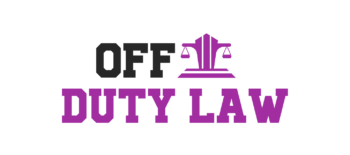Pensacola’s waterways are as busy as its interstates, charter boats easing out at dawn, shipyard crews welding under a noon sun, weekend pontoons dotting the bay. When an accident happens on the water, the aftermath isn’t just medical bills and repairs. It’s a maze of rules: Florida workers’ compensation, federal maritime law, and insurance policies with fine print that seems to multiply. This article clarifies when workers’ comp applies to boating accidents, how maritime laws protect different types of workers, and what recreational victims can do next. For complex cases, local guidance from Michles & Booth, Pensacola Boating Accident Lawyers, often makes the difference between uncertainty and a solid path forward.
Workplace injuries involving boats and maritime workers
Pensacola’s economy leans heavily on the water. That means workplace injuries often occur on or around vessels, charter boats, tugboats, barges, shipyards, marinas, and waterfront construction sites. The challenge is that “who was working where” determines which law applies, and the rules aren’t the same for every maritime job.
Who is a maritime worker, and why it matters
- Seamen and crew members (deckhands, captains, mates on a vessel in navigation) typically fall under the Jones Act and general maritime law, not state workers’ compensation.
- Longshore, harbor, and shipyard workers, people loading, repairing, or building vessels on navigable waters or adjoining facilities, are usually covered by the Longshore and Harbor Workers’ Compensation Act (LHWCA).
- Marina staff, tour guides, environmental techs, and other employees who occasionally use boats for work may be covered by Florida workers’ compensation if they don’t meet seaman status and LHWCA doesn’t apply.
Common work-related boating incidents
- Collisions and allisions (hitting another vessel or a fixed object)
- Line-handling and winch injuries, crush points between hull and dock
- Falls overboard, slip-and-falls on wet decks
- Prop-strike and engine-room burns
- Wake-related spinal trauma and head injuries
The injuries can be severe, fractures, concussions, hypothermia, and complex orthopedic damage, made worse by delayed transport from the water. Sorting out which benefits apply starts with the worker’s role and their connection to a vessel or maritime activity. Local firms like Michles & Booth, Pensacola Boating Accident Lawyers, routinely map those facts to the correct legal framework.
When workers’ compensation applies to boating accidents
Workers’ compensation covers employees injured in the course and scope of employment, but boating injects maritime law into the picture.
The status-and-situs puzzle
- Florida workers’ compensation often applies to land-based employees injured while using a boat for job duties (e.g., a biologist sampling inshore waters or a utility worker crossing a bay). If they are not “seamen,” state comp may be the first avenue.
- Jones Act protection applies to “seamen”, workers with a substantial connection to a vessel in navigation (courts often look for about 30% of work time aboard, plus a functional tie to the vessel’s mission). Those claims proceed outside state workers’ comp and allow negligence suits against the employer, along with maintenance and cure.
- LHWCA generally covers longshore, ship repair, and harbor construction workers injured on navigable waters or adjoining areas like piers and dry docks. It’s a federal no-fault benefit system separate from Florida comp.
Company outings and gray areas
If an injury happens on a company-sponsored boat outing, coverage can be contested. Factors include whether attendance was mandatory, whether the activity advanced the employer’s interests, and whether the worker was “on the clock.” Traveling-employee rules sometimes expand coverage, but facts drive outcomes.
Third-party claims and liens
Even when Florida comp applies, a worker may have a separate negligence claim against a third party, like a negligent vessel operator or a rental livery, while benefits continue. The comp insurer may assert a lien on the third-party recovery, so coordinating benefits and case strategy matters.
Deadlines to know
- Florida workers’ compensation: notify the employer within 30 days: most claims must be filed within 2 years.
- LHWCA: notify within 30 days: typically 1 year to file a claim.
- Jones Act: generally a 3-year statute of limitations for negligence claims.
Misclassification is common on the water. Crew labeled as “independent contractors” on charter or fishing vessels may still qualify as seamen under the Jones Act or as employees under comp laws. An early review with a Pensacola maritime attorney can prevent missed benefits.
Legal rights of recreational victims outside employment settings
Not every boating accident is job-related. Tourists on a rented pontoon, anglers in a center console, or families on jet skis face a different legal landscape, typically governed by general maritime law on navigable waters.
Who can be liable
- The vessel operator for careless navigation, inattention, speeding, or operating while impaired
- The vessel owner for negligent entrustment or failure to maintain safe equipment
- Rental liveries or tour companies for inadequate safety briefings, missing equipment, or unqualified operators
- Manufacturers for product defects (steering, fuel systems, throttle controls)
- Alcohol providers in narrow scenarios under Florida law (e.g., serving minors)
Comparative fault and defenses
Maritime law generally uses pure comparative fault: a claimant’s compensation can be reduced by their percentage of fault but not eliminated. Florida’s modified comparative negligence rule does not usually displace substantive maritime principles for accidents on navigable waters. Liability waivers sometimes signed with rentals may not bar claims involving gross negligence or statutory violations.
Time limits and jurisdiction
- General maritime personal injury: often 3 years from the date of injury
- Florida negligence (non-maritime settings): typically 2 years
- Offshore wrongful death under the Death on the High Seas Act: generally 3 years
Practical steps after a crash
- Get medical care and report the incident to FWC or the U.S. Coast Guard
- Photograph vessel damage, injuries, safety gear, and the surrounding waterway (markers, channel conditions)
- Preserve navigation app data, GPS tracks, and device photos
- Exchange information and identify witnesses: avoid speculative statements
When stakes are high, guidance from Michles & Booth, Pensacola Boating Accident Lawyers, helps recreational victims preserve evidence, navigate insurance, and avoid common pitfalls with maritime jurisdiction.
Proving negligence in water-related accident claims
Whether a claim arises at work or during a weekend outing, proving negligence on the water requires a different toolkit than road cases.
Building the case
- Rules of the road: Inland Navigation Rules and state regulations set duties on right-of-way, speed, lighting, and lookout. Violations can support negligence per se.
- Impairment evidence: Breath tests, toxicology, and witness accounts of BUI or drug impairment are pivotal.
- Vessel data and tech: GPS chartplotter tracks, engine control module logs, AIS (for larger vessels), and phone location data can reconstruct speed and course.
- Scene context: Tides, wind, current, visibility, and channel markers affect liability. Expert reconstruction often matters.
- Equipment and maintenance: Life jackets, fire extinguishers, navigation lights, kill-switch lanyards (ECOS), and bilge systems should be inspected quickly. Spoliation letters help secure evidence.
Comparative fault on the water
Operators and passengers alike can share responsibility. A passenger’s decision to ride on a gunwale, for example, may reduce recovery but rarely ends the claim entirely under maritime comparative fault. For workers, separate standards apply to unseaworthiness and employer negligence under the Jones Act, which can be more favorable than ordinary negligence standards.
Strong early investigation, ideally by counsel familiar with both maritime and workers’ compensation rules, often dictates outcomes.










